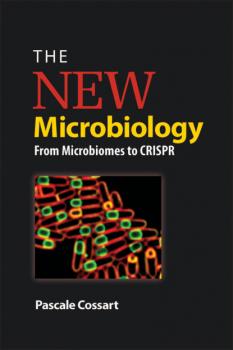Биология
Различные книги в жанре БиологияIndustrial Environmental Management
Provides aspiring engineers with pertinent information and technological methodologies on how best to manage industry's modern-day environment concerns This book explains why industrial environmental management is important to human environmental interactions and describes what the physical, economic, social, and technological constraints to achieving the goal of a sustainable environment are. It emphasizes recent progress in life-cycle sustainable design, applying green engineering principles and the concept of Zero Effect Zero Defect to minimize wastes and discharges from various manufacturing facilities. Its goal is to educate engineers on how to obtain an optimum balance between environmental protections, while allowing humans to maintain an acceptable quality of life. Industrial Environmental Management: Engineering, Science, and Policy covers topics such as industrial wastes, life cycle sustainable design, lean manufacturing, international environmental regulations, and the assessment and management of health and environmental risks. The book also looks at the economics of manufacturing pollution prevention; how eco-industrial parks and process intensification will help minimize waste; and the application of green manufacturing principles in order to minimize wastes and discharges from manufacturing facilities. Provides end-of-chapter questions along with a solutions manual for adopting professors Covers a wide range of interdisciplinary areas that makes it suitable for different branches of engineering such as wastewater management and treatment; pollutant sampling; health risk assessment; waste minimization; lean manufacturing; and regulatory information Shows how industrial environmental management is connected to areas like sustainable engineering, sustainable manufacturing, social policy, and more Contains theory, applications, and real-world problems along with their solutions Details waste recovery systems Industrial Environmental Management: Engineering, Science, and Policy is an ideal textbook for junior and senior level students in multidisciplinary engineering fields such as chemical, civil, environmental, and petroleum engineering. It will appeal to practicing engineers seeking information about sustainable design principles and methodology.
Principles of Microbial Diversity
Every speck of dust, drop of water, and grain of soil and each part of every plant and animal contain their own worlds of microbes. Designed as a key text for upper-level undergraduates majoring in microbiology, genetics, or biology, Principles of Microbial Diversity provides a solid curriculum for students to explore the enormous range of biological diversity in the microbial world. Within these richly illustrated pages, author and professor James W. Brown provides a practical guide to microbial diversity from a phylogenetic perspective in which students learn to construct and interpret evolutionary trees from DNA sequences. He then offers a survey of the «tree of life» that establishes the necessary basic knowledge about the microbial world. Finally, the author draws the student's attention to the universe of microbial diversity with focused studies of the contributions that specific organisms make to the ecosystem. Principles of Microbial Diversity fills an empty niche in microbiology textbooks by providing an engaging, cutting-edge view of the «microbial zoo» that exists around us, covering bacteria, archaea, eukaryotes, and viruses.
The New Microbiology
Microbiology has undergone radical changes over the past few decades, ushering in an exciting new era in science. In The New Microbiology , Pascale Cossart tells a splendid story about the revolution in microbiology, especially in bacteriology. This story has wide-ranging implications for human health and medicine, agriculture, environmental science, and our understanding of evolution. The revolution results from the powerful tools of molecular and cellular biology, genomics, and bioinformatics, which have yielded amazing discoveries, from entire genome sequences to video of bacteria invading host cells. This book is for both scientists and especially nonscientists who would like to learn more about the extraordinary world of bacteria. Dr. Cossart's overview of the field of microbiology research, from infectious disease history to the ongoing scientific revolution resulting from CRISPR technologies, is presented in four parts. New concepts in microbiology introduces the world of bacteria and some recent discoveries about how they live, such as the role of regulatory RNAs including riboswitches, the CRISPR defense system, and resistance to antibiotics. Sociomicrobiology: the social lives of bacteria helps us see the new paradigm by which scientists view bacteria as highly social creatures that communicate in many ways, for example in the assemblies that reside in our intestine or in the environment. The biology of infections reviews some of history's worst epidemics and describes current and emerging infectious diseases, the organisms that cause them, and how they produce an infection. Bacteria as tools introduces us to molecules derived from microbes that scientists have harnessed in the service of research and medicine, including the CRISPR/Cas9 genome-editing technology. The New Microbiology takes us on a journey through a remarkable revolution in science that is occurring here and now.
Molecular Biotechnology
Since 1994, Molecular Biotechnology: Principles and Applications of Recombinant DNA has introduced students to the fast-changing world of molecular biotechnology. With each revision, the authors have extensively updated the book to keep pace with the many new techniques in gene isolation and amplification, nucleic acid synthesis and sequencing, gene editing, and their applications to biotechnology. In this edition, authors Bernard R. Glick and Cheryl L. Patten have continued that tradition, but have also overhauled the book's organization to Detail fundamental molecular biology methods and recombinant protein engineering techniques, which provides students with a solid scientific basis for the rest of the book. Present the processes of molecular biotechnology and its successes in medicine, bioremediation, raw material production, biofuels, and agriculture. Examine the intersection of molecular biotechnology and society, including regulation, patents, and controversies around genetically modified products. Filled with engaging figures that strongly support the explanations in the text, Molecular Biotechnology: Principles and Applications of Recombinant DNA presents difficult scientific concepts and technically challenging methods in clear, crisp prose. This excellent textbook is ideal for undergraduate and graduate courses in introductory biotechnology, as well as, courses dedicated to medical, agricultural, environmental, and industrial biotechnology applications.
In the Company of Microbes
A look at the amazing, groovy world of microbes With more than 1,000 posts and 2 million views, the esteemed blog Small Things Considered has been sparking the imagination of microbiologists for an entire decade. Throughout the years, Elio Schaechter and his team of dedicated bloggers have shared exciting, unexpected, and unusual stories from the microbial world. In the Company of Microbes is a carefully selected treasure chest of wise, amusing, and even profound statements about the ubiquity and relevance of the microbial world. Schaechter, past ASM Presidents, and distinguished microbiologists from around the globe reflect on personal, sometimes historic interactions with microbes and unexpected discoveries, each essay conveying the excitement and sense of surprise that microbiology holds for them. This is the reason that Small Things Considered is a scientific and social media phenomenon that has impacted scientists at every stage of their careers and shared the magical of microbes with world. Join Schaechter in discovering a never-ending pageant of astounding variations on the theme of microbial life. Enjoy!
Почему мы едим то, что едим. Наука о том, как наш мозг диктует нам, что есть
Поразительное исследование психологии питания от ведущего специалиста по нейробиологии Рейчел Херц. Какие музыкальные жанры лучше всего подчеркивают вкус красного вина? Почему нам хочется калорийной пищи, когда нас постигают неудачи? Как наша личность соотносится с предпочтением сладкого или соленого? Эта книга, словно чуткий проводник, помогает читателю уловить и распознать сенсорные, психологические и физиологические факторы, лежащие в основе пищевых привычек. С этим знанием вы сможете сделать каждый прием пищи осознанным и здоровым, а также получать только удовольствие от еды. В формате PDF A4 сохранен издательский макет.
One simple thing: почему йога работает? Новый взгляд на науку йоги
Эта книга блестяще выстраивает связи между древнейшими учениями индийских мудрецов и современным светским обществом. Опираясь на современные нейронауки, древнюю мудрость и собственный опыт, автор рассказывает, как регулярная практика йоги может преобразовать наше тело, нервную систему, мозговую деятельность и, таким образом, кардинально изменить качество нашей жизни к лучшему. Эдди Штерн – всемирно известный учитель и исследователь йоги, соавтор мобильного приложения «The Breathing», руководитель международной конференции «Yoga&Science». Он практикует и изучает йогу, санскрит и смежные дисциплины с 1987 года.









